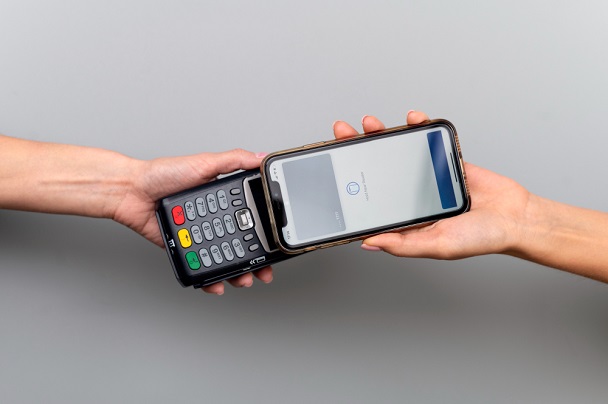
Choosing an impeccable mobile POS system could very well be what distinguishes flourishing ventures from those merely keeping their head above water in any given market sector.
Business organizations have embraced mobile POS solutions and witnessed remarkable upticks in sales conversions, attributing this success to an enhanced shopper experience.
Let’s explore how you can leverage this pivotal asset—read on for insights set to expand your transactional horizons!
Key Takeaways
- In 2024, top mobile POS systems like Square POS, SumUp POS, Lightspeed POS, PayPal Zettle, and TouchBistro offer features suited to specific business types.
- Key benefits of using mobile POS include flexibility in processing transactions anywhere and convenience for both customers and staff. They also often provide real-time data access which helps businesses manage inventory and sales effectively.
- When choosing a mobile POS system, consider user-friendly interfaces for ease of use by staff members; integration with e-commerce platforms is crucial for managing online and offline sales together.
- Security must be a priority when selecting your mobile POS system; it should comply with GDPR standards to protect customer data and ensure secure payment processing.
- Mobile POS systems need reliable hardware and software backed by strong customer support services. This ensures fewer interruptions in service which could affect sales and customer satisfaction.
Best Mobile POS Systems of 2025

Square POS
Square POS stands out as a top choice for many businesses. It’s simple to use and comes packed with features. You get real-time sales data, inventory tracking, and customer insights all in one place.
Plus, it works on various devices like iPads and iPhones, making it flexible for different setups.
This system also accepts various payment types. Whether it’s credit cards, mobile payments or even gift cards, transactions are quick and secure. The setup is straightforward with no complex installation needed; just download the app and connect the card reader to start selling immediately!
Starting Price: £0 per month
SumUp POS
SumUp POS simplifies payment processing for small businesses. It offers a straightforward setup with no fixed contract or recurring fees, making it cost-effective. The system integrates seamlessly with mobile devices and accepts various payment methods including card payments and contactless transactions.
SumUp’s intuitive interface ensures an easy user experience while providing essential features such as inventory management and sales analytics.
The hardware is durable and portable, perfect for businesses on the move, and its security measures comply with GDPR standards. SumUp facilitates growth by offering additional tools like virtual terminals for online transactions, making it versatile for retail, services, freelancers, or e-commerce integration.
Starting Price: £49 per month
Lightspeed POS
Lightspeed POS is a versatile and feature-rich mobile point-of-sale system suitable for various industries, including retail, hospitality, and restaurants. It offers a user-friendly interface, seamless payment processing options, robust inventory management tools, and integration with e-commerce platforms.
The system also provides comprehensive sales reporting and analytics to help businesses make informed decisions. Additionally, Lightspeed POS prioritises security and compliance standards to ensure data protection and GDPR considerations.
Businesses considering Lightspeed POS can expect reliable hardware and software performance backed by excellent training and support options. Its scalability makes it suitable for businesses looking to future-proof their operations while ensuring an efficient checkout experience for customers in the present.
Starting Price: £79/mo
PayPal Zettle
PayPal Zettle is a versatile mobile POS system suitable for various business types, offering seamless payment processing and inventory management. With its user-friendly interface and robust features, it caters to retail stores, restaurants, freelancers, and service-based businesses.
The system integrates with e-commerce platforms, providing a convenient solution for businesses looking to expand their online presence. PayPal Zettle also prioritises security and compliance standards, ensuring GDPR considerations are met while delivering reliable hardware and software performance.
Businesses can leverage PayPal Zettle’s sales reporting and analytics tools to gain valuable insights into customer behaviour and transaction patterns. Additionally, the system supports contactless and mobile payment technologies in line with current market trends.
Starting Price: £149 for the terminal and card reader transactions are 1.75%.
TouchBistro
TouchBistro is a leading mobile POS system tailored specifically for the hospitality and restaurant industry. With its user-friendly interface, it streamlines order management, tableside ordering, and payment processing on iPads, making the dining experience smoother for customers and staff alike.
TouchBistro also offers robust features such as inventory management to keep track of stock levels in real-time, providing valuable insights into sales trends – vital for improving efficiency.
Moreover, TouchBistro’s integration with e-commerce platforms supports businesses aiming to expand their reach beyond physical storefronts. Its sales reporting and analytics tools offer comprehensive data on performance metrics, empowering business owners to make informed decisions swiftly.
Starting Price: £59
What is a Mobile POS System?
A Mobile POS (Point of Sale) system is a portable, handheld device or smartphone application that enables businesses to process transactions and manage sales on the go. Unlike traditional POS systems, which are typically stationary and require hardware installation, mobile POS systems offer flexibility and mobility for businesses.
They provide various benefits such as convenience, cost-effectiveness, and real-time data accessibility.
Difference between mobile POS and traditional POS
Mobile POS systems change the game by offering flexibility and mobility that traditional POS can’t match. Unlike old-school cash registers or stationary point-of-sale systems, mobile POS works on devices like smartphones and tablets.
You can take payments anywhere in your store or even out on the street – it’s all about going where your customers are.
Traditional POS often ties you down to one spot, usually a checkout counter with bulky hardware. It’s more than just taking up space; these systems are hard to update and keep secure.
But with mobile POS, updates happen in the cloud, keeping things slick and safe without fuss. Plus, they’re perfect for businesses that move around, such as market traders or pop-up shops.
Benefits of using a mobile POS system
Moving from the old to the new, let’s dive into how a mobile POS system can transform your checkout process. A mobile POS system takes convenience to the next level for both customers and businesses. Here are some key benefits:
- Enhanced Mobility: Allows sales transactions to be processed anywhere within the store or at off-site locations, increasing flexibility.
- Improved Customer Experience: Reduces queue times and enables on-the-spot, personalised service, enhancing the overall shopping experience.
- Cost-Effective: Generally more affordable than traditional POS systems, with lower upfront costs and scalable features.
- Easy to Set Up and Use: Typically user-friendly with minimal training required, facilitating quick adoption by staff.
- Real-Time Data Access: Offers instant access to sales data and inventory levels, aiding in more informed decision-making.
- Increased Sales Opportunities: Enables sales staff to complete transactions on the shop floor, potentially increasing impulse purchases.
- Space-Saving: Occupies less physical space than traditional POS systems, ideal for small retail spaces.
- Versatility: Often supports various payment methods including contactless, chip and PIN, and mobile payments.
- Inventory Management: Integrates with inventory systems to track stock levels in real time, reducing the likelihood of stockouts.
- Improved Accuracy: Reduces human error in sales transactions and inventory tracking.
What types of businesses are Mobile POS systems suitable for?
Mobile POS systems are versatile and adaptable, making them suitable for a wide range of businesses. They are particularly beneficial for small and medium-sized enterprises in retail, such as boutique stores, pop-up shops, food trucks, and craft fairs.
Additionally, they cater to the needs of hospitality businesses including cafes, bars, and restaurants that benefit from tableside ordering and payment processing. Service-based industries like salons, repair services, or freelance professionals can also streamline their operations with mobile POS systems.
Moreover, e-commerce integration allows online retailers to unify their in-store and online sales channels seamlessly.
The flexibility of mobile POS systems makes them ideal for businesses seeking efficient transactions without being tied down to a fixed checkout location. From brick-and-mortar retailers to on-the-go service providers or online merchants looking to expand into physical spaces – mobile POS is an all-encompassing solution tailored to modern business needs.
Also Read:
How to Choose a Mobile POS System
When choosing a mobile POS system, it’s crucial to determine your business needs first and foremost. Evaluate the features and integrations offered by different providers, and consider affordability, security and compliance, as well as the system’s scalability for future growth.
Determine business needs
To determine business needs, start by identifying the specific challenges or pain points your business currently faces. Consider aspects such as customer experience, sales processes, inventory management, and payment systems.
Assess what functionalities are essential for improving efficiency and streamlining operations. Evaluate if you need a mobile POS system to process payments on-the-go, manage inventory in real time, or integrate with your existing e-commerce platforms.
Understanding your unique requirements will guide you in selecting a mobile POS system that caters to your business’s distinct needs.
Evaluate features and integrations
To choose the best mobile POS system, businesses should first define their specific needs and business goals. They should then carefully evaluate the features and integrations offered by each system to ensure they align with their requirements.
Consideration should be given to aspects such as user-friendly interface, payment processing options, inventory management, e-commerce integration, customer relationship management tools, sales reporting and analytics capabilities, security standards including GDPR compliance, and hardware and software reliability.
By thoroughly assessing these features and integrations in line with their business needs, companies can make an informed decision that will contribute to operational efficiency and enhanced customer experience.
Consider The Price
When choosing a mobile POS system, it’s crucial to consider affordability. Assess your budget and compare the pricing models of different providers. Look beyond the initial costs and factor in any additional fees for transaction processing, hardware, or software updates.
Remember that a cost-effective solution should still offer essential features tailored to your business needs.
To ensure you’re making a financially sound decision, evaluate the return on investment (ROI) potential of each system based on its pricing structure and functionalities. By carefully considering affordability, you can select a mobile POS system that aligns with your financial resources without compromising on vital capabilities.
Security and Compliance
Ensuring security and compliance is crucial when selecting a mobile POS system. Look for features like end-to-end encryption and tokenisation to safeguard customer payment data. Additionally, choose a system that complies with industry regulations such as GDPR to protect sensitive customer information.
Consider systems that offer robust user access controls, regular security updates, and encrypted data storage to prevent unauthorised access or breaches.
When assessing compliance, consider how the system handles card payments and adheres to PCI DSS standards. It’s important to prioritise reliable hardware and software that meet industry-specific security requirements without compromising usability or performance.
Scalability and Future-Proofing
When choosing a mobile POS system, it’s crucial to assess its scalability and future-proofing capabilities. Look for a system that can grow with your business and adapt to evolving technology trends.
Consider factors like the ability to handle increasing transaction volumes, support multiple locations, and integrate with other business systems. Future-proofing also involves ensuring that the chosen system can keep up with changing customer preferences and payment methods, such as contactless payments and digital wallets.
To achieve scalability and future-proofing, opt for a mobile POS system that offers regular updates and has a track record of adapting to industry changes. By prioritising these aspects, you can invest in a solution that will continue to meet your needs as your business expands while staying aligned with technological advancements in the retail landscape.
Conclusion
This ultimate guide is handy in helping you find the best mobile POS systems for your business in 2024. We’ve covered the key features and functionalities of these systems, as well as how to choose a mobile POS system that suits your specific industry needs.
Practicality and efficiency are at the forefront of our strategies, making it simple for you to implement them effectively. By embracing these approaches, businesses can witness significant improvements in their operations and customer experience.
Remember to explore additional resources and services to further enhance your understanding of this topic. Now is the time to take action and revolutionise your business with a superior mobile POS system!
FAQs
What should I look for in a mobile POS system for my business type and size?
Look for a mobile POS system that matches your business needs, whether you have a small shop or a large enterprise. Check the user experience (UX), compatibility with mobile devices, payment gateways, and features like sales analytics.
How important is user experience when selecting a Mobile POS?
User experience is key! A good UX means it’s easy for your team to use the mobile POS on various devices and operating systems, making checkouts fast and smooth for customers.
Can I find a Mobile POS that works with both Android devices and iPads?
Yes, many POS system providers offer software compatible with different operating systems—so whether you’re using Android devices or an iPad app, there’s likely an option out there.
Does every Mobile POS come with hardware like cash drawers or barcode scanners?
Not all systems come with hardware; some are just apps while others include printers, cash drawers, or barcode scanners. You can often choose what you need based on how you take payments.
Are there extra costs I should be aware of before choosing a Mobile Point-of-Sale System?
Be mindful of subscription fees, and costs of additional hardware like receipt printers or checkout counters—and don’t forget to consider transaction charges tied to payment processors!
Will changing to Wireless Point-of-Sale Systems help make my business more sustainable?
Switching to wireless point-of-sale (POS) systems could reduce paper usage by sending digital receipts instead—a small change towards making your business greener!
Best POS software











